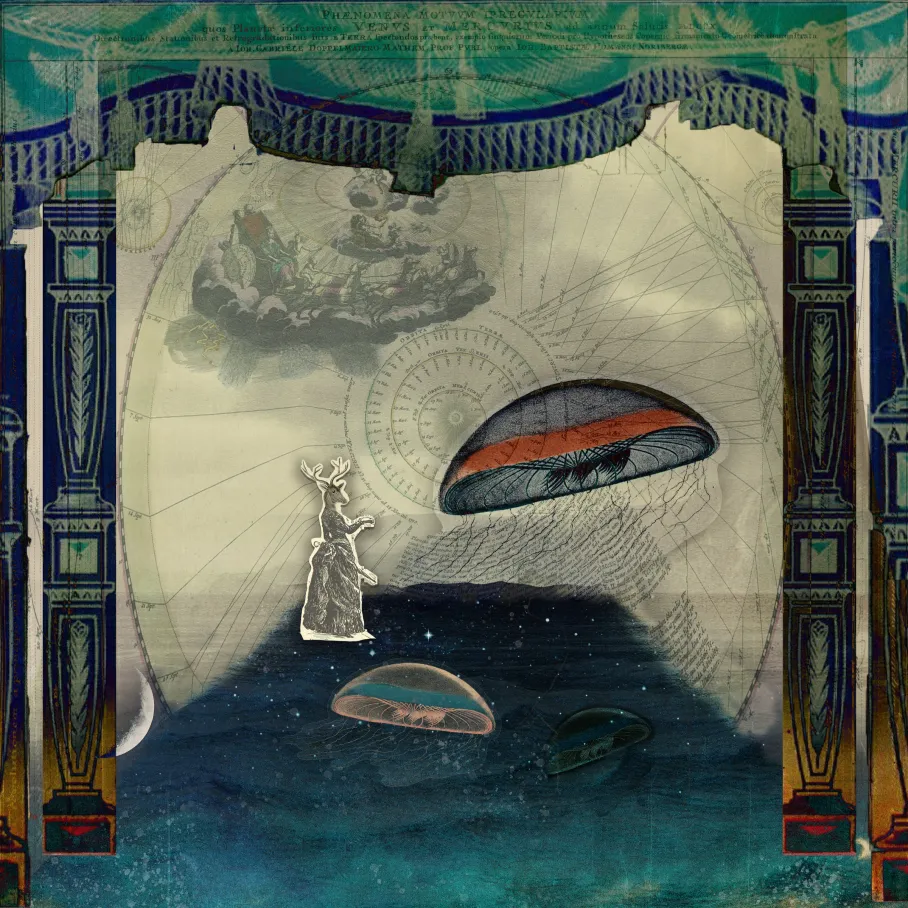March 31, 2022My Animal Understudy Replaced Me in the School Production of The Tempest

Cast as Caliban, my shuddered spine
and wrung hands hid me in the wings
when my cue came. I sweated through
the makeshift costume of tissue feathers
and glued fur and plastic teeth and rubber
claws and cardboard scales and rug skin
and tinfoil tusks and foam horns and wire
wings and a sting that flopped behind me,
an amalgamation of animals, both free now
and fossilised then, all brought to semi-
life offstage. Paper mâché hooves clung
to the boards, treading a stillness that
couldn’t be moved no matter how much
the teacher/director/failed actor push-pulled,
shout-whispered, tug-shoved at my stuffed-
bursting frame. Then something inside me
stepped out: part me, part free; part human,
part animal; part thought, part instinct.
I watched from my wingless wings
and envied what I heard and saw and
felt: every word spoken spotlighted;
every step stilled the air; every gesture
so weighted they shook the hands of all
that watched. The servant acted equal
to the master—and so was, amongst
the noises, sounds, and sweet airs of the isle,
the aisle, the stage, and this brave new world.
The applause lasted the length of a storm.
Bonus:
Luigi turned this poem into a song and lyric video—view that here.
from Ekphrastic Challenge